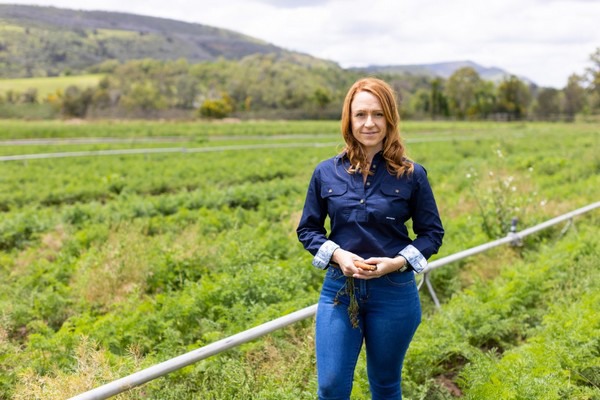Australian Organic Limited (AOL) has welcomed today’s Coalition Government re-election commitment to implement a domestic standard for organic production, processing, supply chains, and labeling. Australia is currently one of the only developed nations in the world without a mandatory domestic standard for the use of the term organic, which disadvantages certified organic operators in both domestic and export markets and causes confusion for Australian consumers.

Niki Ford, Chief Executive Officer, Australian Organic Limited
AOL CEO Niki Ford welcomed today’s announcement and said domestic regulation for Australia’s $2 billion plus organic sector should be on the agenda for other major political parties.
“Over the past two years, we have worked closely with Government on regulatory reform, and today’s announcement is a positive sign the Coalition Government is committed to its implementation,” Ms. Ford said.
“We would like to see that commitment from all major political parties this election so we can be assured the current technical barriers to trade for organic producers will be eliminated going forward.
“This would also help to build consumer confidence in the sector as currently there is no single definition for organic in Australia.”
Australian certified organic operators who export their products face onerous red tape and economic burden given that, under current arrangements, they must meet secondary organic standards requirements for each country they wish to trade in.
Additionally, the absence of a mandatory domestic standard for the use of the term ‘organic’ means there is no requirement for an operator to be certified to sell organic products in the Australian domestic market, which Ms. Ford said meant non-certified operators could make false organic claims on packaging and marketing.
“A mandatory domestic standard will add credibility to those hard-working organic operators who voluntarily choose to undergo a rigorous certification process each year to build trust with their customers,” she said.
“Last year, the Australian Organic Market Report uncovered that 31 percent of shoppers who had purchased an organic product during the previous year believed they had been misled by organic claims on the product packaging.
“Domestic regulation will ensure all organic claims on product labeling are authentic and will provide consumers with greater confidence when choosing to buy organic.”
With many consumers choosing a lifestyle supported by genuine and authentic organic products, AOL has prepared a local representative pack on organic regulation for Australians to send to their local candidates in the lead-up to the Federal Election. The pack highlights background information of the discussions to date on domestic regulation and AOL’s recommendation on a preferred option for legislation.
For more information:
Hannah Hardy
hannah.hardy@bluehillpr.com.au
